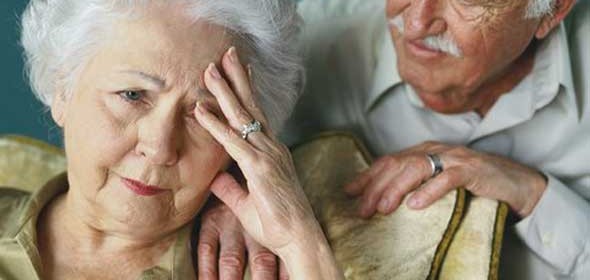A Dementia Epidemic

Alzheimer’s and other forms of dementia are afflicting far more Americans than ever before. An alarming new report by the Alzheimer’s Association shows that one in three seniors have dementia when they die, and deaths from the disease increased nearly 70 percent between 2000 and 2010. “It’s an epidemic, it’s on the rise, and currently there is no way to delay it, prevent it, or cure it,” neuroscientist Maria Carrillo tells NPR.org. As deaths from diseases like cancer, AIDS, and stroke have declined, Alzheimer’s: An ever-more-common fate Alzheimer’s rates have risen because people are living longer. Some 5 million Americans now have Alzheimer’s or related dementia, and as baby boomers age, that figure is expected to jump to nearly 14 million by 2050. As “simply staggering” as those numbers are, says Francis Collins, director of the National Institutes of Health, funding for Alzheimer’s research still lags far behind the billions allocated for treating and curing AIDS, diabetes, heart disease, and cancer. Researchers say many people don’t realize that Alzheimer’s devastates the body— including lowering a person’s ability to fight infection—as well as the mind, making the disease not just disabling but deadly.
Health scare of the week Painful zipper mishaps
The men’s room can be a dangerous place. Over the past decade, more than 17,500 people in the U.S.—almost always men— have sought emergency room treatment after trapping their genitals in the teeth of their trouser zippers. For the most part, “this is a pain issue,” researcher Herman Singh Bagga of the University of California, San Francisco, tells NBCNews.com. “It can completely ruin your night.” Occasionally, a zipper injury requires surgery, including unwanted circumcision. More often, the biggest risk is infection by the multitude of bacteria that a penis tends to harbor:
“It’s important once you get it out from the zipper that it’s washed well, and you use a little antibiotic ointment,” Bagga says. Wearing underwear and avoiding distractions while zipping can help prevent an accident. For those who do get stuck, the key is not to panic—and, if easing the zipper down doesn’t work, to seek professional help. Bagga says there is no standard medical procedure for freeing sufferers; current methods employ everything from mineral oil to screwdrivers and wire cutters.

 Print
Print